Most soundtrack fan attach the name of Graeme Revell to the score of The Crow and the Red Planet. One of his most recent works – The Chronicles of Riddick – just arrived in Hungarian cinemas and another new release – Sin City from Robert Rodriguez – will arrive next month. Our website had the chance to interview the composer from Auckland. We raised questions about the most important and exciting moments of his career and his relation to the soundtracks.
The first question is why did you choose the world of the score. Who or which had an impression on you, why turned in the direction of this type of extremely colourful music tendency?
While I was involved in experimental music with my group SPK I realized that I usually had a visual or image of some kind in mind when I wrote. I was inspired by the music for some films (mostly the scores of Morricone and the films of Tarkovsky) to think about film scoring.
What is your oppinion about itself the score as an artistic form? It seems for me a fantastic glittering and at the same time very hard, very difficult job. How do you see it from inside?
I am lucky to think in dramatic terms when I write music so having a film in front of me as inspiration and map, if you like, makes it very easy for me. But I think film scoring is more of a craft than an art – I can think of many styles of music I would like to write that one could not put on a film soundtrack without distracting the audience from the film. Having said that I think I have been one of the composers who has pushed back the limits for film music.
Whether do you feel any competition in your job, and how does it appear?
I think you mean do we compete for the best films. The answer is yes. There are never enough good films to work on but a composer usually needs some previous success on a similar film before he will be chosen. This can be frustrating.
How do you compose a music? How do you start, what is the first, how do you build up the mood and the instrumentation of the music in yourself?
When I see a film I instantly hear the score in my head. Sometimes melodies but always the palette or bank of sounds I am going to use. The movie tells me what is possible and I always try to imagine how far I could be original.
Which type of softvers do you use at home to compose the bases of the scores?
Digital Performert and Gigastudiost. We mix to ProTools.
How many years did you collect the samples of orchestra sounds?
Nearly 20 years. Orchestral and everything else I can find!
Do you remember your first composition? What was it? What did you write for?
I think it was for a small English student film called The Snow Queen. It was baroque orchestra plus harpsichord, frame drum, shawm etc. I lost it.
 Your first score I purchased was The Negotiator. Although this kind of synthesis between the electronic and the symphonic music is a little bit far from my taste but it made fairly an impact on me. Mostly the last track which is perfect I think. How long did you work on this score? How far could you use your imagination?
Your first score I purchased was The Negotiator. Although this kind of synthesis between the electronic and the symphonic music is a little bit far from my taste but it made fairly an impact on me. Mostly the last track which is perfect I think. How long did you work on this score? How far could you use your imagination?This was a difficult score because it had a difficult director who kept losing confidence in everything. He would love something one day and hate it the next. So it took 2-3 months. Ultimately I used what I wrote first which was right for the film. This kind of film is quite standard so I wouldn't claim that the sound is at all experimental. I am proud of this score though because I think it is a good example of the genre and drove the film's rhythm.
Talking about first things: I think your first really wonderful score is The Hand That Rocks the Cradle. The main theme which can be found on this CD as well was introduced by the tunes of the light opera. Was it yours or the producer's vision?
This was the director Curtis Hansen's vision. It suited the domesticity of the film. For the movie to succeed we, the audience, needed to be lulled into a false sense of security, just like the family.
On the cast list of People Under the Stairs (directed by Wes Craven) you're mentioned as an addition composer besides Don Peake. How did this collaboration born and what was the work with Peake like?
I did not have the resources I needed (Orchestra size) to do my best work. It was my fault so they asked Don to finish the job. I did not meet him.
I think your next notable project was The Crow which movie is infamous by Brandon Lee's accidental and tragic death. In this case you mixed many kind of performances on one album. How do you remember this work?
This perhaps my signature work – it is one of the most copied scores ever I think. Most gothic, religious or horror/thriller scores now contain most of these elements; world music, ethnic female and male voices, industrial percussion etc. Before that those scores were more derived from Carl Orff's Carmina Burana like Goldsmith's Omen score.
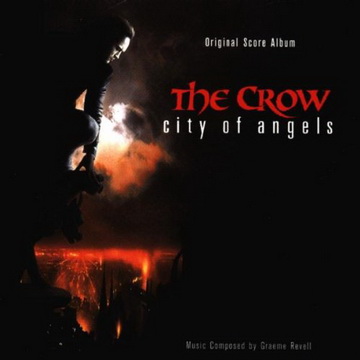 In the case of the second part (which was realized two years later) you didn't remake or reuse the score of the first one but you composed a brand new score and you only kept the main theme and the orchestration. Because of this the score didn't become stereotyped. How difficult is to show something new in case of a movie series and their scores? And what do you think what is the best approach to compose a sequel score?
In the case of the second part (which was realized two years later) you didn't remake or reuse the score of the first one but you composed a brand new score and you only kept the main theme and the orchestration. Because of this the score didn't become stereotyped. How difficult is to show something new in case of a movie series and their scores? And what do you think what is the best approach to compose a sequel score?It was quite difficult because, despite the financial success of the first film, the producers refused to spend any money on orchestra in the second. So I had to reuse it and add Latin guitar.
It is not difficult to change styles for a series or sequel. But it is nice to have some thematic continuity. This is why I used Riddicks theme from Pitch Black in The Chronicles of Riddick even though they are very different filmsk.
During your career you've worked on many adaptations (like Spawn, Daredevil, Street Fighter) and on many sequels (like Freddy vs. Jason). In these cases what are the most challenging things? Are these kind of composing tasks (adaptation music, sequel music) different than the others?
No. The movie always tells me what to write.
For the 1999 movie 13th Warrior you'd started to wrote the score at first but then the filmmakers changed their mind and decided to pass the project to Jerry Goldsmith. What was the reason behind this change?
It was very weird. I was hired by John McTiernan who did not take much interest in the music. He then literally disappeared during the final part of post-production. No-one could find him and Michael Chrichton – writer and producer – took over. He didn't even listen to my score, hired his friend and former collaborator (Goldsmith) to score it. But the film is boring and I was quite happy to retain my rights to the composition.
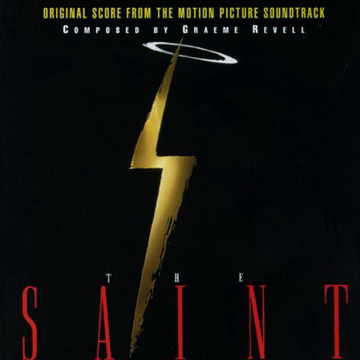 I think your score for The Saint is magnificent. I like how you incorporated the original Saint theme into your fantastic new themes. It is really sad it did become a series of movies and you couldn't continue to score more Saint movies. Tell us a little bit about this project. How did you come into this project? Do you like the spy genre? Have you ever approached by the James Bond producers to compose a 007 music? Do you think you could helm a 007 project as good as you did in the case of The Saint?
I think your score for The Saint is magnificent. I like how you incorporated the original Saint theme into your fantastic new themes. It is really sad it did become a series of movies and you couldn't continue to score more Saint movies. Tell us a little bit about this project. How did you come into this project? Do you like the spy genre? Have you ever approached by the James Bond producers to compose a 007 music? Do you think you could helm a 007 project as good as you did in the case of The Saint?Thank you! I like this one too. Philip Noyce asked me to work with him again and I was very happy to say yes. I think the spy genre is OK. My favorite TV spy show was The Avengers because it was funny, but that movie is one of the all-time worst. Nothing makes any sense!
After Martin Campbell hired Eric Serra to score Golden Eye he called me to say he wished hed hired me. But that is as close as I got to 007 because after that the producers were so unhappy they decided to play it safe by getting David Arnold to rearrange the classic John Barry themes for all the sequels. That's a little sad I think, but I do feel this would be one of the most difficult jobs in all of film scoring. Those Barry themes are brilliant!!
I think The Crow is on the same artistic level as its sequel but in case of the The Chronicles of Riddick I think the score succeeded over its predecessor Pitch Black. What is your opinion about this? What kind of feedbacks have your received about this score?
Thank you again. I agree but don't forget Pitch Black doesn't offer the grand possibilities of Riddick. I have had very little feedback about Riddick because nobody really loved the film. That is the most disappointing thing about my job. People really notice the scores from the most successful movies and often those are not the best scores.
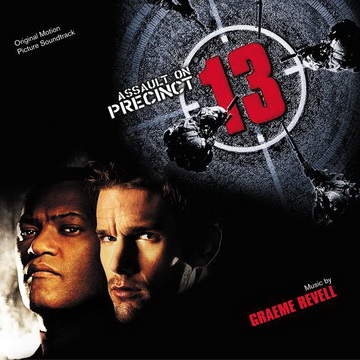 For most of the filmscore fans the Assault On Precinct 13 score by John Carpenter is a definitve masterpiece. Did the filmmakers suggest you something about the original main theme?
For most of the filmscore fans the Assault On Precinct 13 score by John Carpenter is a definitve masterpiece. Did the filmmakers suggest you something about the original main theme?No. They said: "We are trying to make a new movie and we want new music". I saw the original so long ago I do not recall the score and it was suggested I did not refamiliarize myself with it.
You've mentioned on the cast list of the movie Don't Say A Word as a composer of the track called "The Heist" according to imdb.com. I couldn't find more information about this elsewhere. Is this information true? How did you come into this project?
Gary Fleder was unhappy with the music for the opening 5-10 minutes of his film and asked me to rescore it so it would be more "fun". My music has also been used on several films I did not score, for example Three Kings, Kingdom of Heaven, Miss Congeniality II.
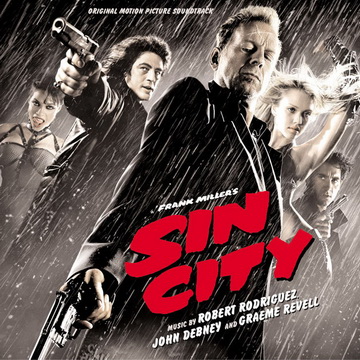 Last time you were a part of a three person collaboration for Sin City. How was your experiences about this collaboration like?
Last time you were a part of a three person collaboration for Sin City. How was your experiences about this collaboration like?It was great fun. There were no ego problems. I like the work of Rodriguez and Debney very much. But Robert wanted three very different segments so I did not speak with John at any time during the project. This was strange but it worked out well I think. Sin City was my most exciting project for some time - visually so inspirational.
You've showed your talent and capabilities in nearly every genre. Which genre do you feel is the closest for your and why? Do you have a dream project?
I suppose fantasy is most interesting because the palette of instruments can be so bizarre. But I would love to have scored Being John Malcovich. I had fun with Human Nature but it did not reach the same stature as a film. My dream project is to score my own film. I have written one and am half way through the second. I don't know if I want to direct. Maybe just produce.
I would like to ask who are your favourite score composers? By accident which composer's work to be followed for you?
Ennio Morricone, early Goldsmith.
What do you think about the present and the future of the scores?
The old style has officially passed with the death of Elmer Bernstein, Jerry Goldsmith and Henry Mancini. John Williams is still repeating himself (and why not) and Howard Shore does not have the melodic ability to step into their shoes. With movies so fast cut and stylized it is not possible to write in the old way any more except on a few projects like anim,ations and slow dramas. I have not heard much new in scoring for a few years now but I think we can push the boundaries in lots of new ways if directors are courageous.
What is your oppinion about the young generations? Who is the most talent of them?
I don't know.
As I noticed you like your enthusiastics very much and as we experienced you available with pleasure. What do you think about the importance of this communication with them?
I love to spread information – true and false. A story is usually better when it is exaggerated. Everything I say here is either absolutely true or substantially true. Or a complete fabrication.
If you would start again, would you choose the same job? If not why and which job would you do?
No. Writer and political activist. That may be sooner than we think!
What is your hobby? What do spend your spare time with?
Writing and being politically active. Collecting wine, cars, rare books and art. Reading. Running several other businesses and trying to produce movies and live stage shows.
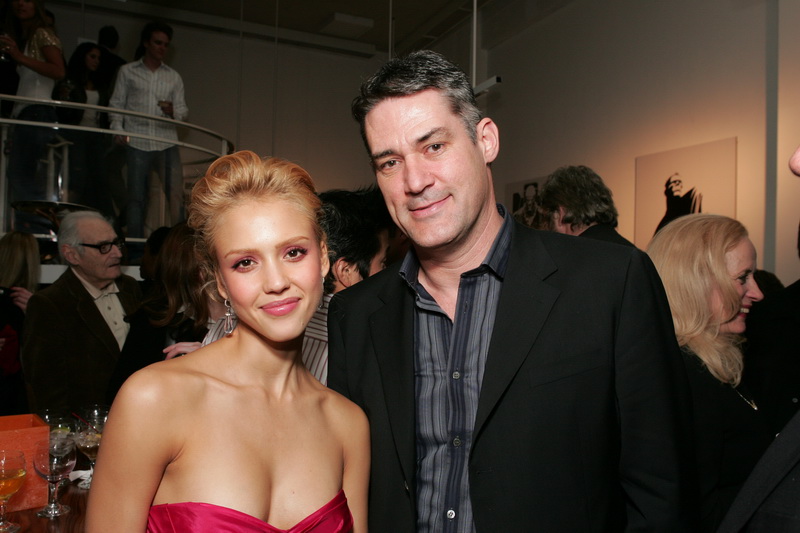
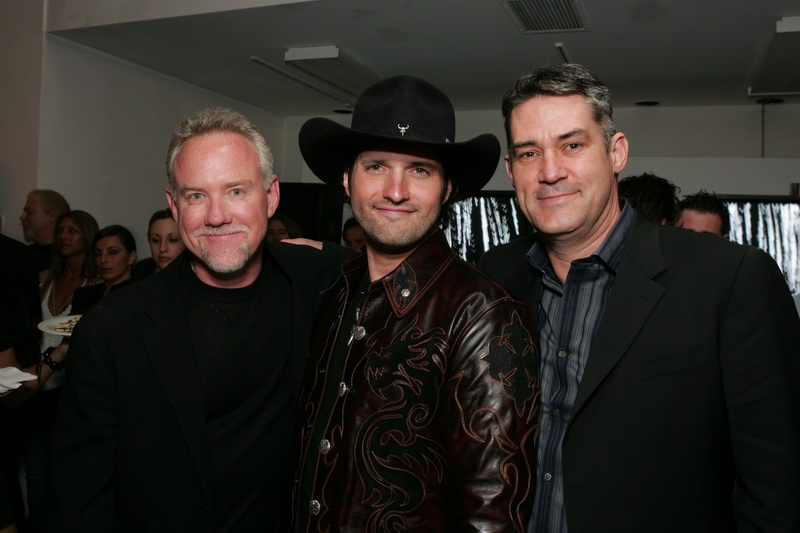
Photographs from: Graeme Revell, Tom Kidd
Special thanks to Tom Kidd
May 25th, 2005
Special thanks to Tom Kidd
May 25th, 2005








